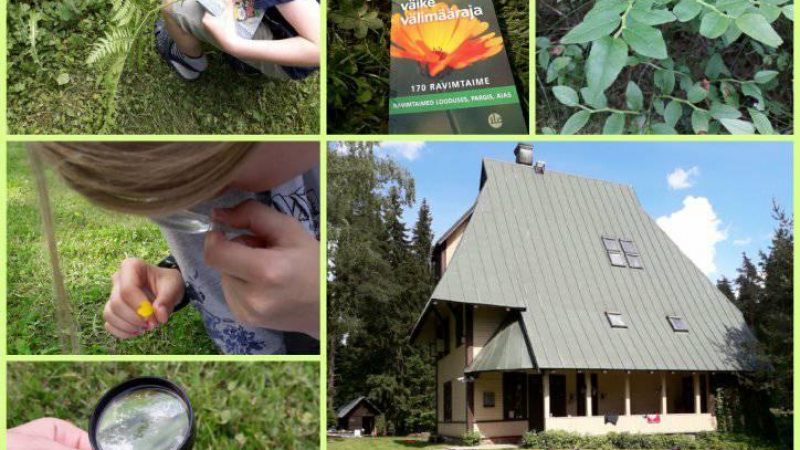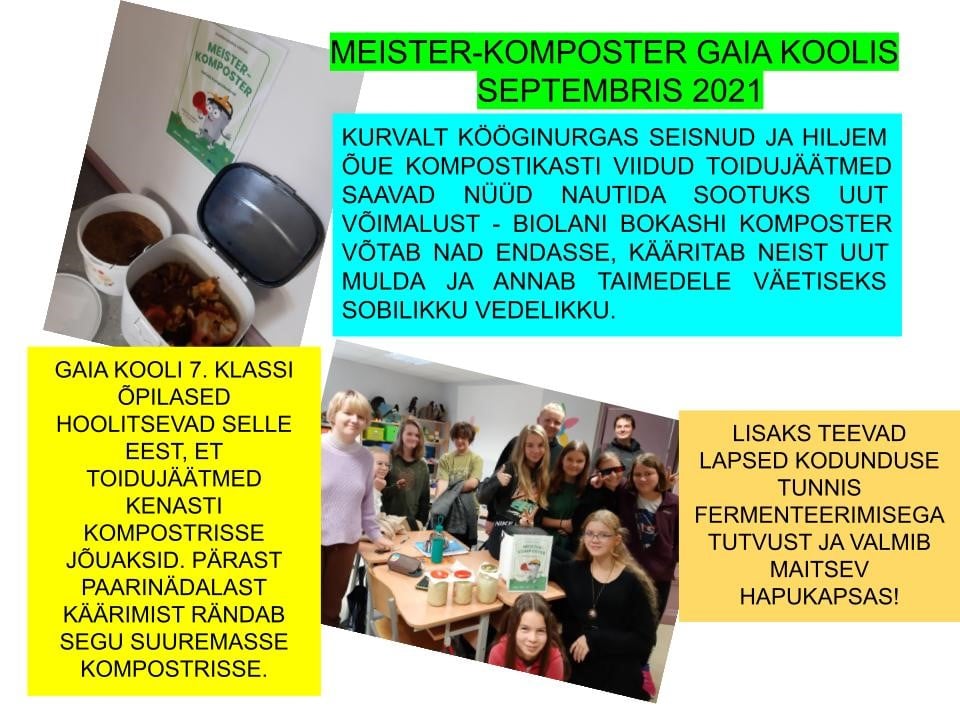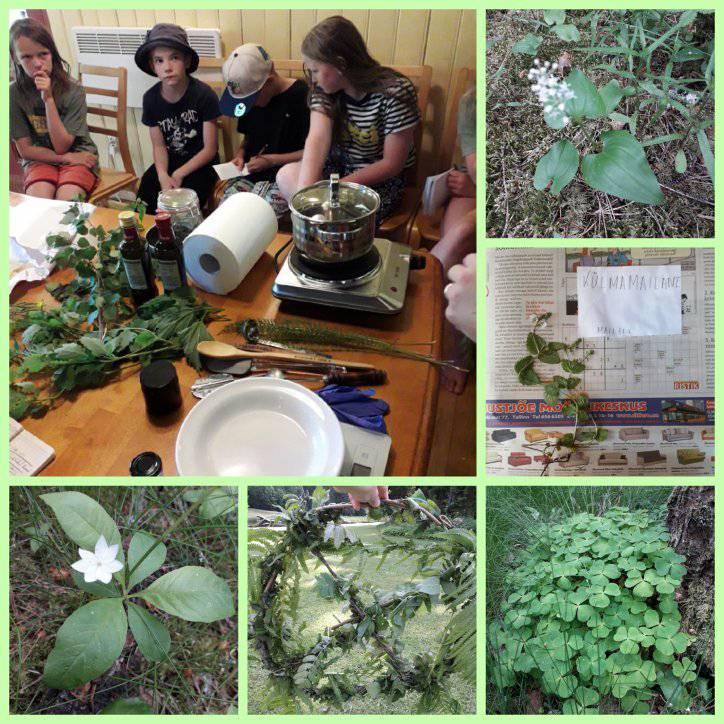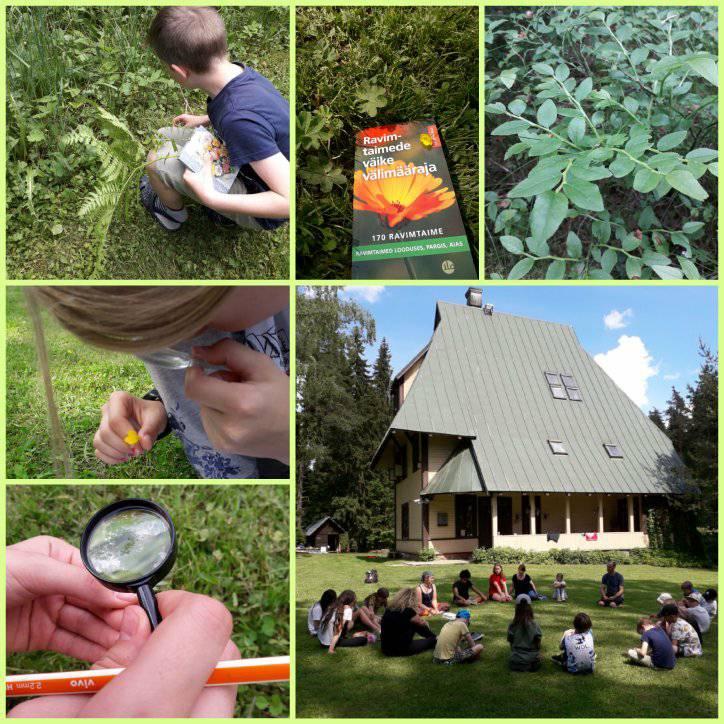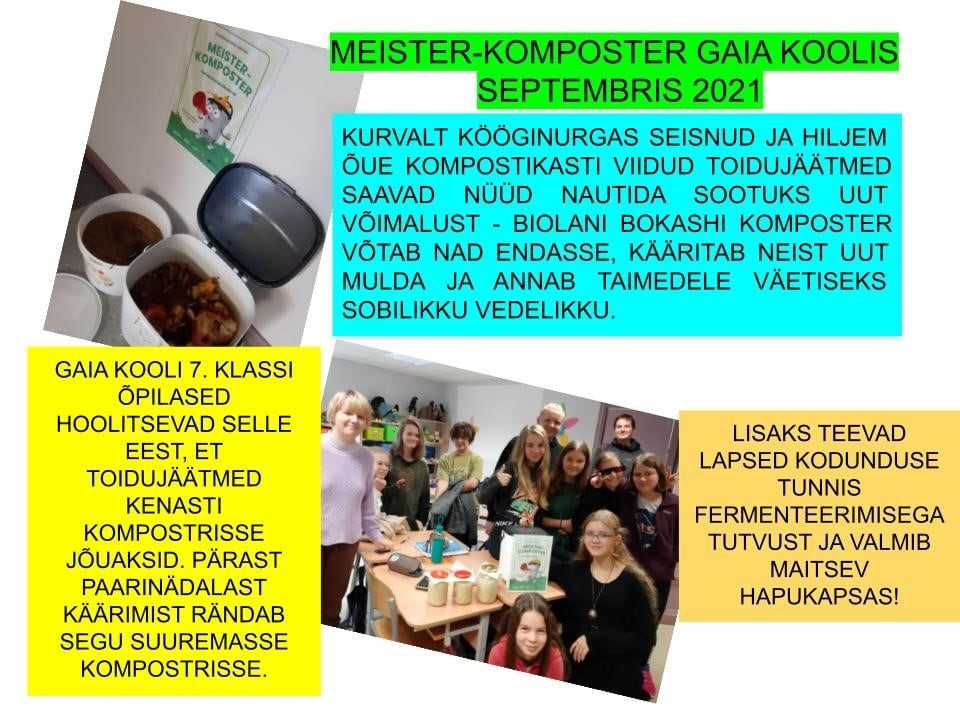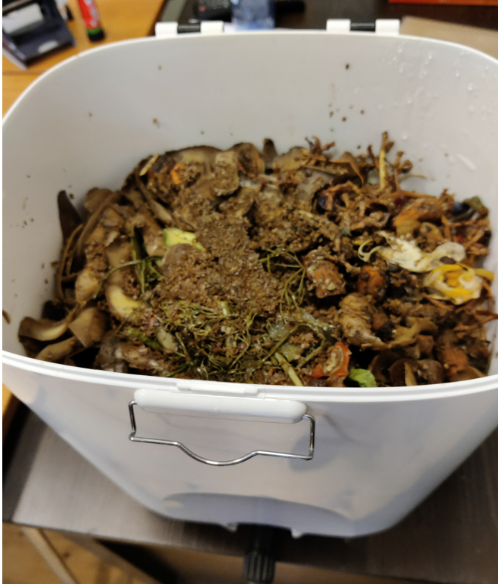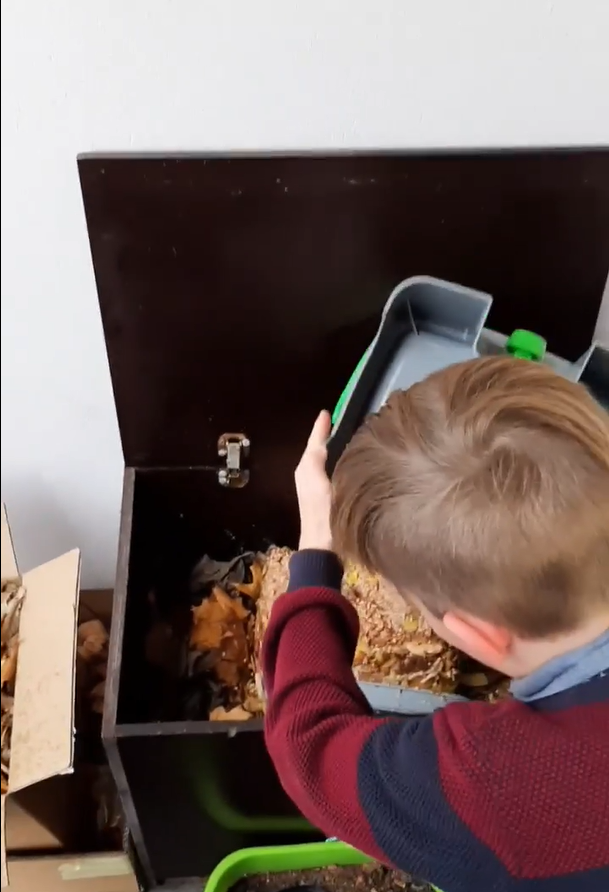Gaia School is a private community school founded in 2014, currently situated in Kadriorg, Tallinn. Gaia School is following the national curriculum of Estonia but from the start they have been developing their own approach towards both teaching and curriculum. Gaia school follows the principles of Gaia Education that promotes sustainable lifestyle, caring about the Earth and well-being of the human being. Their curriculum has an emphasis on nature studies and national heritage, it supports integrated lessons and teachers’ cooperation.
It is a community school – this means that the parent’s contribution to school life is greater than in an ‘average’ Estonian school. Parents are welcome (and they eagerly use the opportunity) to participate in their children’s’ field trips, outdoor activities as well as take part in schools’ daily work.
Gaia School developed two living-lab projects: compiling a digital herbarium and starting to compost food waste with Bokashi method. Three teachers and fifteen students aged of 12-13 years old were involved.
The main objective of the Herbarium project was to get to know the traditional herbs growing in Estonia, to learn how to use them (e.g. different fillings and ointments) and also to compile a physical and digital herbarium. During Herbarium project, the students gained practical knowledge about which herbs grow in the wild and how to dry the plants for the herbarium (this was done in a nature camp). In addition, a workshop on the use of plants was held, during which various prints and trays were made. Student’s digital skills were also developed while compiling the digital herbarium.
The aim of the Composting project was to reduce food waste in school (and indirectly in student’s homes as well) and find a better way to dispose the food waste. During the Composting project students got an introduction to the Bokashi composting method (composting technique that turns food scraps into living soil, easily and without foul smell) and they piloted composting project.
Also, an expert visited the school and talked about food waste, why it is a problem and how to reduce food waste. The school started composting their food waste and used the composted soil/fertilizer in the school garden. Composting project is also still ongoing and the school is considering collecting and composting food waste at school on a bigger scale.
At the end, the school has reported that the projects were very successful and students and parents were very invested. The situation was a bit hard at the beginning due to the lockdowns, but in the end of the schoolyear students were able to meet again and the work continued with a faster pace. After piloting food composting with one composter school has now got more of the composters to different classrooms as well and now the whole school is collecting food waste and turning them into soil.
CONTACT
Annika Vesselov
National coordinator, Foundation AHHAA
Mail
School website

